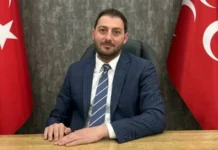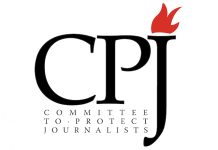Turkey’s government is drafting a judicial reform bill that would impose prison sentences on people who publicly promote or depict gender identities or expressions deemed to be “against public morals,” the T24 news website reported.
The proposal, known as the 11th Judicial Package, would amend Article 225 of the Turkish Penal Code, which currently covers public indecency. Under the draft, anyone who “acts against their biological sex” or “encourages or praises such behavior” could face between one and three years in prison. Another article would criminalize engagement or marriage ceremonies between same-sex couples, carrying sentences of up to four years. The maximum penalty for sexual acts performed in public would also increase from one year to three.
The legislation could also affect digital and broadcast media, including streaming platforms that feature same-sex relationships in films or series. Such content could be prosecuted for “encouraging behavior contrary to public morals,” according to the bill’s wording.
In its justification the government said the measures are intended to protect the “institution of the family” and ensure “the upbringing of physically and mentally healthy generations.” Officials have framed the reforms as part of a broader effort to counter what they describe as “gender-neutrality movements” and to strengthen “moral and social values.”
Yıldız Tar, editor-in-chief of the LGBT news outlet Kaos GL, said the proposal represents a wider effort to strip citizens of basic freedoms. “This is not just a bill against LGBT people—it’s a bill against freedom itself,” Tar said. “If society stays silent, it won’t stop with us. Everyone will end up living in a country built on submission.”
The We Will Stop Femicide Platform, one of Turkey’s leading women’s rights groups, said the government is using “family protection” as a pretext to legalize discrimination. In a statement, the group said, “The judiciary’s duty is to ensure justice, not to police identity. Equality and citizenship are not privileges granted by the state—they are rights every person is born with.”
The draft also introduces new restrictions on gender reassignment procedures. The minimum age would rise from 18 to 25, and applicants would be required to be unmarried and obtain a medical board report from a health ministry–approved hospital confirming that the procedure is medically necessary for reasons of mental health. The report could only be issued after four evaluations conducted at least three months apart.
Unauthorized gender reassignment surgeries would be punishable by three to seven years in prison and heavy fines for medical professionals who perform them outside the legal framework.
Turkey’s ruling Justice and Development Party (AKP) has increasingly portrayed LGBT visibility as a threat to public morality and family values. Pride marches have been banned in major cities for years, and officials frequently describe LGBT advocacy as an attack on traditional norms. If enacted, the 11th Judicial Package would represent one of the most restrictive legal measures targeting LGBT individuals in Turkey in recent decades.
Homosexuality is not illegal in Turkey, but homophobia is widespread. It is common for Turkish President Recep Tayyip Erdoğan and other politicians from his party to attack LGBTQ+ individuals and accuse them of perversion and ruining family values.
Meanwhile, Turkey was ranked 47th among 49 countries as regards the human rights of LGBTQ+ people in the 2025 edition of the Rainbow Index released in May by the International Lesbian, Gay, Bisexual, Trans and Intersex Association (ILGA), which placed Turkey among the bottom five countries for LGBTQ+ rights in Europe.















